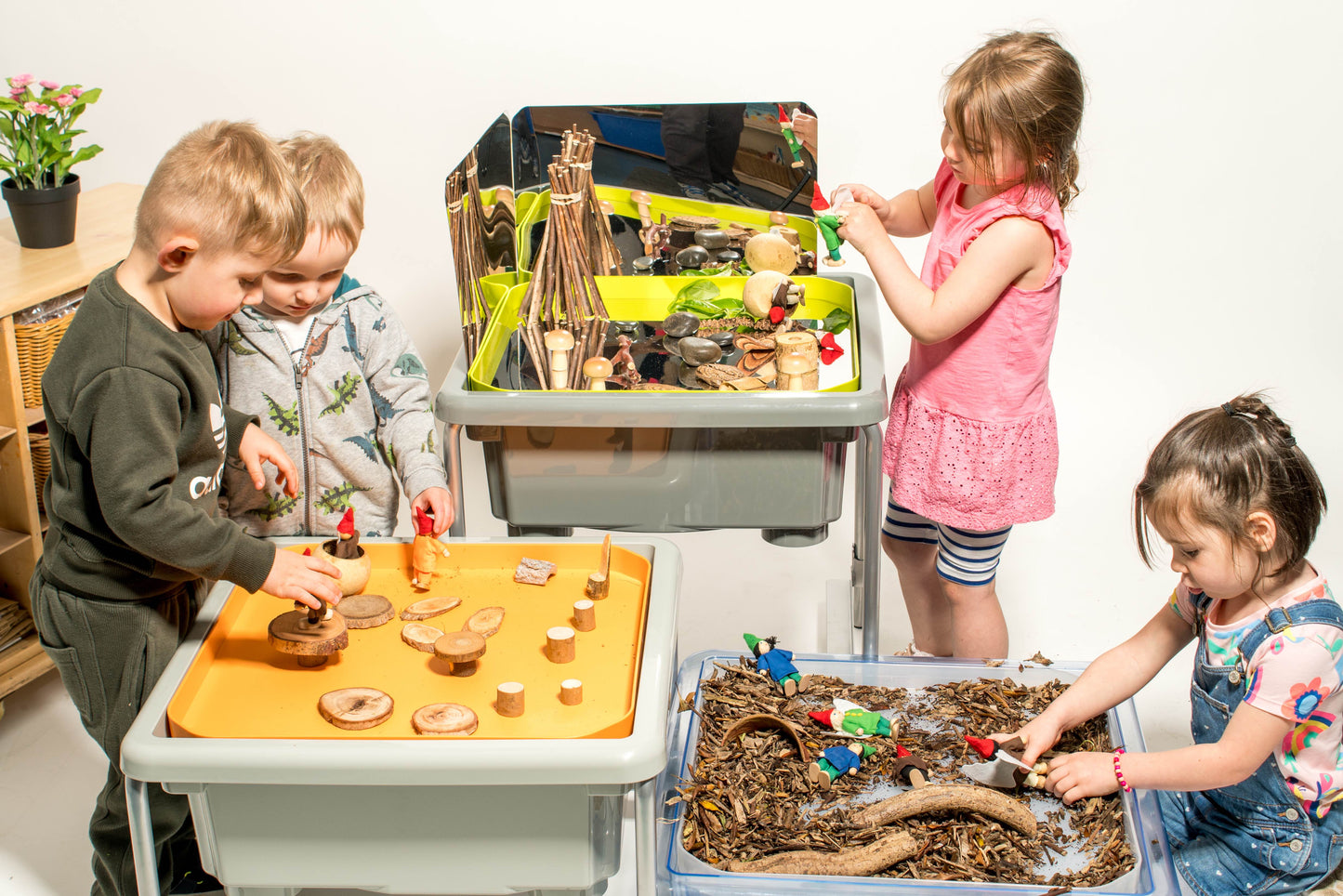
Who knows what the power of play really is? From the moment they are born, children engage in play, evolving dramatically in their approach and complexity over their first five years. Notable 20th-century psychologists, Mildred Parten and Jean Piaget, have profoundly influenced our understanding of play and its critical role in a child's development, particularly in emotional regulation.
Mildred Parten's Six Stages of Play
- Unoccupied Play:In the initial stage, children appear to make random movements, but this behaviour is foundational. By manipulating materials and exploring their surroundings, they start learning about self-control and how the world works. Toys like sensory balls or teething rings are perfect for this stage, providing different textures and shapes for babies to explore.
- Solitary Play:In this stage, toddlers engage independently with toys, such as shape-sorters or bead mazes. This form of play allows them to explore freely and develop personal skills like motor functions and cognitive abilities. Toys like Edx Education’s linking cubes, Rainbow Pebbles®, themed counters or puzzles can encourage solitary play, promoting concentration and self-entertainment.
- Onlooker Play:Here, children observe others without joining in. This stage is crucial for social learning as they pick up social cues and rules by watching their peers. Edx Educational toys that mimic real-life scenarios, such as sand and water trays or toolkits, can engage children’s curiosity and prepare them for interactive play.
- Parallel Play:Children play alongside each other without significant interaction. They might use similar toys and imitate each other, laying the groundwork for future cooperative play. Providing multiple sets of the same toys ensures each child can play independently while being aware of their peers.
- Associative Play:At around four years old, children begin interacting more with peers. They share toys and comment on each other’s play, though their activities remain loosely connected. Toys that encourage role-play, like dolls or construction activities , help children develop social skills and emotional understanding.
- Cooperative Play:By age five, children engage in play with a common goal, requiring verbal communication and cooperation. Games with rules, such as board games or building sets like Edx Education’s construction toys, foster teamwork, problem-solving, and emotional regulation.
Jean Piaget’s Perspective
Jean Piaget offered a different yet complementary view, emphasizing cognitive development through play. He categorized play into three types based on children's behaviours: practice play (repetitive actions), symbolic play (role-playing), and play-with-rules (structured games). Piaget believed play was a serious cognitive task akin to adults’ work, underscoring its importance in mental growth.
How Edx Education Toys Enhance Emotional Regulation
Encouraging Free Play: Edx Education toys provide ample opportunities for children to engage in free, unstructured play, crucial for emotional development. Allowing children to choose their activities fosters independence and creativity, essential for emotional regulation.
Supporting Solitary and Social Play: By offering educational toys that cater to various stages of play, Edx Education helps children transition smoothly from solitary to social play. This progression aids in developing empathy, cooperation, and conflict resolution skills.
Emotional Expression and Problem-Solving: Interactive toys that involve role-play or collaborative building allow children to express their emotions and navigate social dynamics. These experiences are invaluable for developing emotional intelligence and resilience.
Parental Involvement: While children benefit from independent play, they also enjoy sharing playtime with parents. Edx Education encourages parents to engage with their children’s play without dominating it, fostering a loving bond and providing emotional support.
Understanding the significance of play in a child’s emotional regulation and overall development helps parents and educators provide the best environment for growth. Edx Education are designed to support each stage of play, offering children the tools they need to explore, learn, and regulate their emotions effectively. By valuing and facilitating free play, we empower children to develop critical life skills while enjoying the joy and freedom that play brings.
